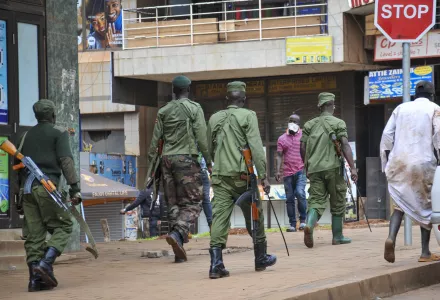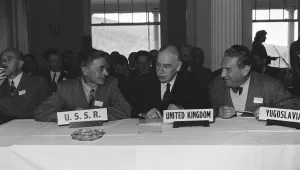International Security is America's leading peer-reviewed journal of security affairs.

Summary
Opportunistic repression arises when states exploit crises to suppress the political opposition. An examination of the relationship between COVID-19 shutdown policies in Africa and state violence against civilians tests this theory. A subnational case study of repression in Uganda also provides evidence that the increase in repression was concentrated in opposition areas that showed less support for Yoweri Museveni in the 2016 elections.
Donald Grasse et al., "Opportunistic Repression: Civilian Targeting by the State in Response to COVID-19," International Security, Vol. 46, No. 2 (Fall 2021), pp. 130–165, doi.org/10.1162/isec_a_00419.



